Cary Grant Clashed With This Co-Star: “Couldn’t Be Married to Her for 24 Hours”
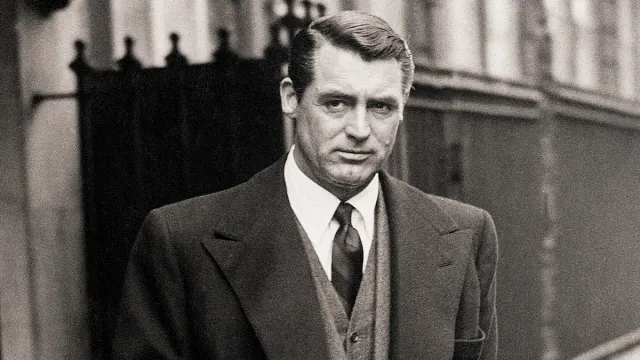
Alfred Hitchcock movies are ripe with tension, and for one pair of co-stars, that was true of their off-screen relationship as well. In 1941, Cary Grant and Joan Fontaine starred in Suspicion, with her character coming to suspect that her new husband married her for money and is planning to kill her. Grant has been quoted as saying that casting him opposite Fontaine made it all seem more real, because he also couldn’t stand her in real life.
Fontaine’s bitter feud with her sister, Olivia de Havilland, is well-documented, but there was another, much more minor Hollywood feud she was involved in, too. Read on to find out more about why she and Grant were at odds.
READ THIS NEXT: Kissing Marilyn Monroe Was “Awful,” Famous Co-Star Claimed.
The actors played a couple in Suspicion.
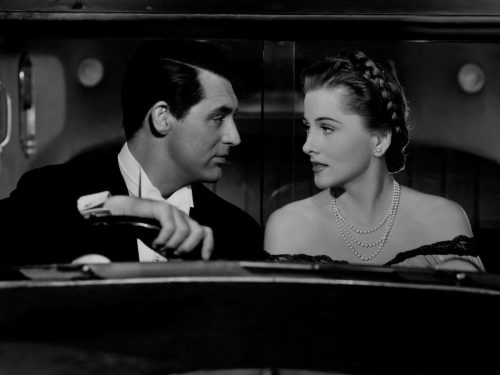
Suspicion is about a woman (Fontaine) who quickly elopes with a charming man (Grant) only to find out that he an unemployed gambler and liar. As time passes, her fears about him grow and grow to the point where she’s convinced he is planning to murder her. It’s based on a 1932 novel by Francis Iles called The Lie Before the Fact.
Grant said that he felt like he could “wring [Fontaine’s] neck.”
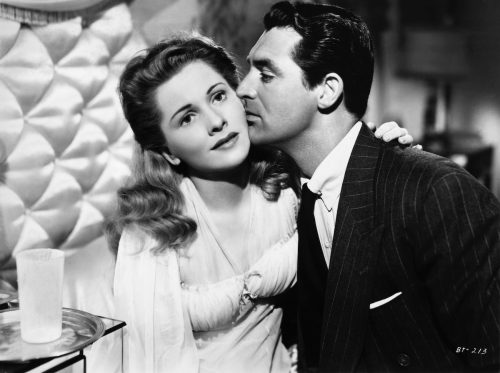
Prior to being cast in Suspicion, Fontaine and Grant were both in 1939’s Gunga Din. Ironically, they were originally meant to play lovers in that movie too, but Grant and Douglas Fairbanks decided to switch parts. It’s unclear whether Grant and Fontaine came to dislike each other on that set or not, but Grant certainly didn’t mince words about the Rebecca star later.
According to the Los Angeles Times, Grant once said that the casting of Suspicion was perfect because “anyone who knows me realizes that I couldn’t be married to Joan Fontaine for more than 24 hours without wanting to wring her neck.”
For more celebrity news delivered right to your inbox, sign up for our daily newsletter.
Grant vowed never to work with Hitchcock again.
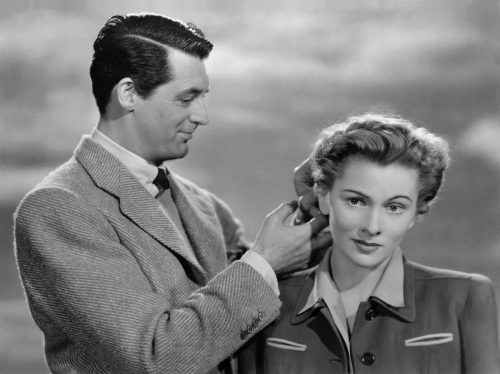
Not much else is known about Grant’s issue with Fontaine—or whether she disliked him as much as he apparently did her—but he did vow not to work with Hitchcock again after Suspicion, according to Talk Film Society. Fortunately for film buffs, this didn’t end up being the case. Grant and Hitchcock collaborated three more times: on Notorious, To Catch a Thief, and North by Northwest.
The site Factinate claims that Grant found Fontaine to be a diva, and that Hitchcock ignored him in favor of paying Fontaine all of his attention. It seems that he got over his anger with the director, and their future films would give Grant some of his most iconic roles.
Fontaine won an Oscar for the film—beating out her sister.
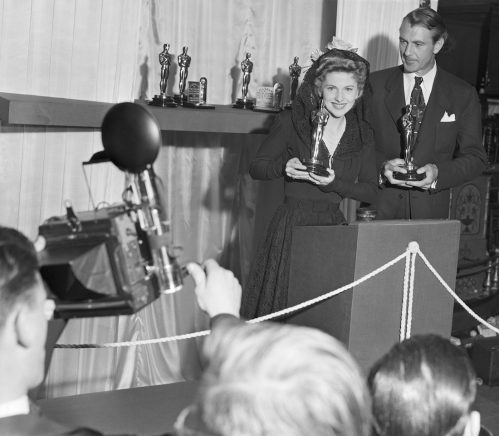
For her work in Suspicion, Fontaine won the Academy Award for Best Actress. One of the actors she triumphed over was de Havilland, who was nominated for Hold Back the Dawn.
“My paralysis was total,” Fontaine wrote of finding out she won the award in her memoir No Bed of Roses (via The Morning Call). “I felt Olivia would spring across the table and grab me by the hair. I felt age 4, being confronted by my older sister. Damn it, I’d incurred her wrath again!”
Not long after De Havilland went on to win two Oscars herself: in 1947 for To Each His Own and in 1950 for The Heiress.
Grant wasn’t nominated for Suspicion, but the movie was up for Outstanding Motion Picture and Best Scoring of a Dramatic Picture.